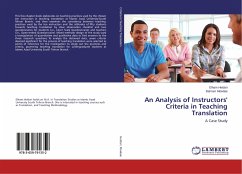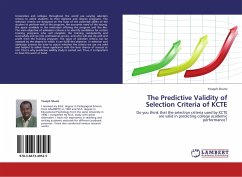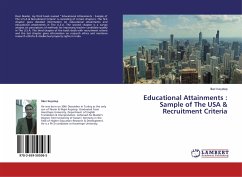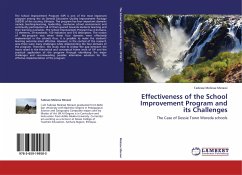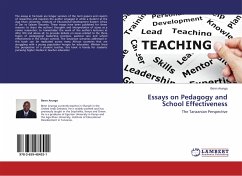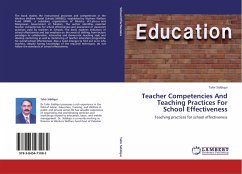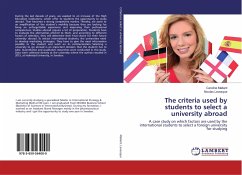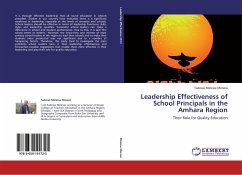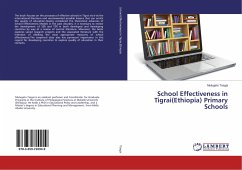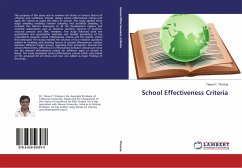
School Effectiveness Criteria
Versandkostenfrei!
Versandfertig in 6-10 Tagen
57,99 €
inkl. MwSt.

PAYBACK Punkte
29 °P sammeln!
The purpose of this study was to examine the status of various factors of effective and ineffective schools, design school effectiveness criteria and apply the criteria to assess the status of schools. The study applied three stage sampling involving random sampling and stratified sampling. It included five districts belonging to all the development regions and included respondents such as students, teachers, parents of students, resource persons and SMC members. The study followed both the quantitative and quantitative methods and studied perception of the respondents towards school effective...
The purpose of this study was to examine the status of various factors of effective and ineffective schools, design school effectiveness criteria and apply the criteria to assess the status of schools. The study applied three stage sampling involving random sampling and stratified sampling. It included five districts belonging to all the development regions and included respondents such as students, teachers, parents of students, resource persons and SMC members. The study followed both the quantitative and quantitative methods and studied perception of the respondents towards school effectiveness criteria and the specific school they belonged. The study revealed the solution of four research questions related to enabling and blocking factors in schools effectiveness, relation between different target groups regarding their perception towards the school effectiveness, differences in effectiveness between schools and what are the relevant effectiveness criteria for different typesof schools in Nepal. The study developed school effectiveness criteria which were based on the proposed list of criteria and new one added as major findings of this study.



